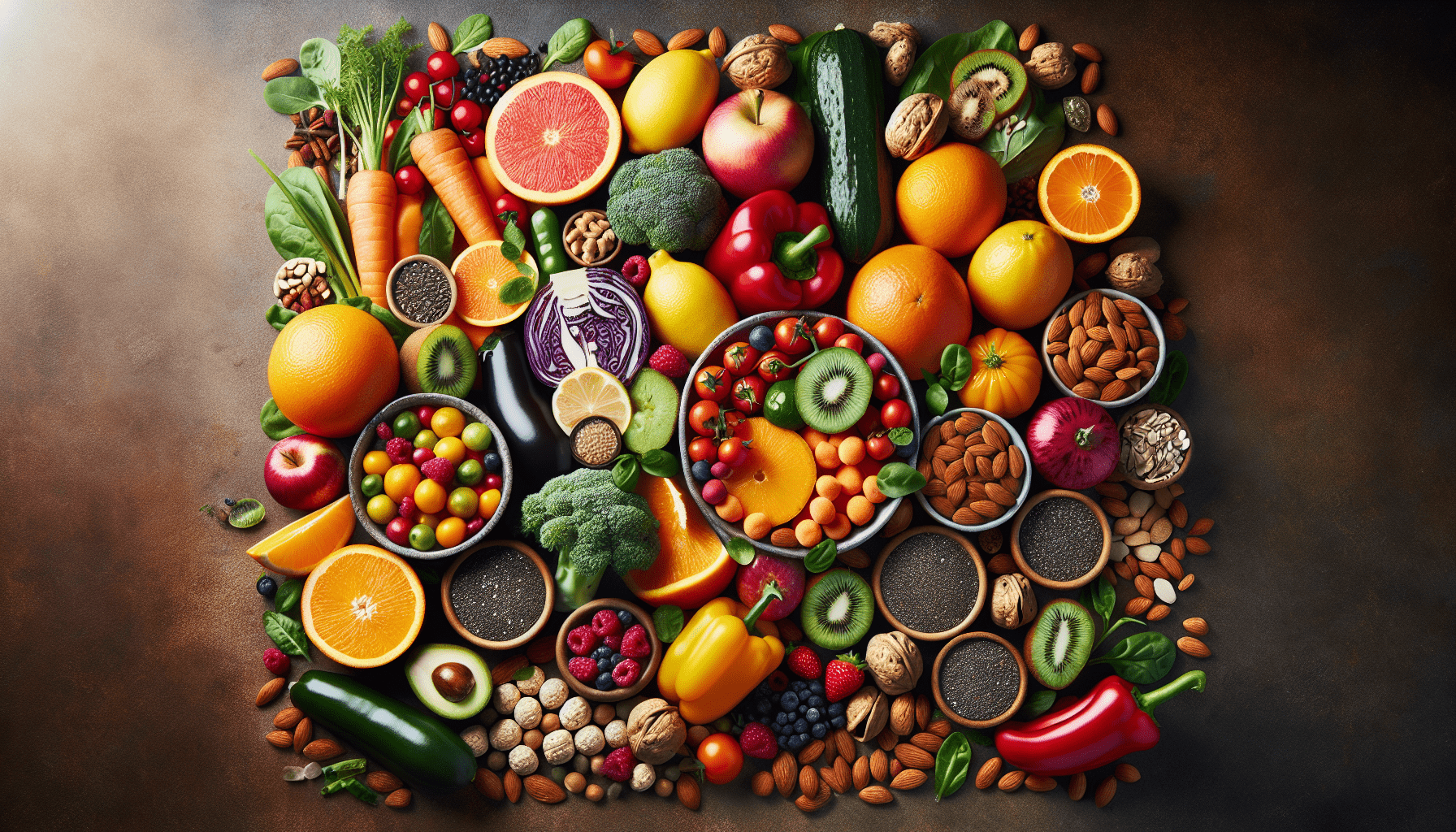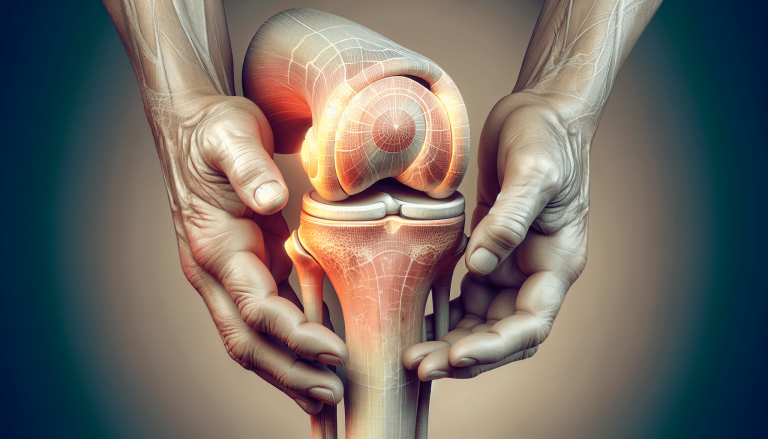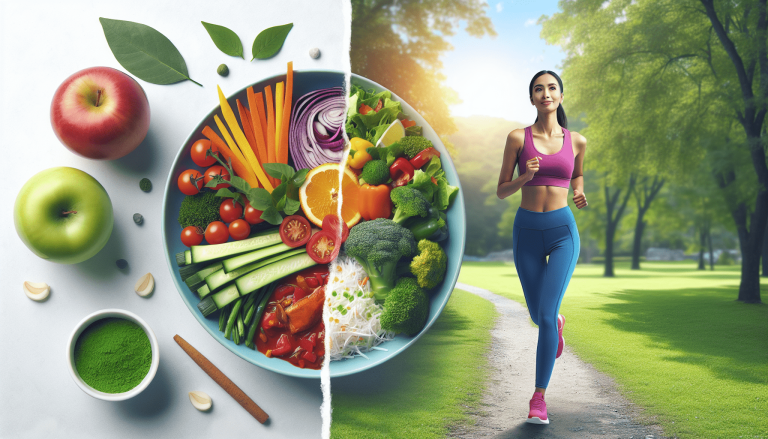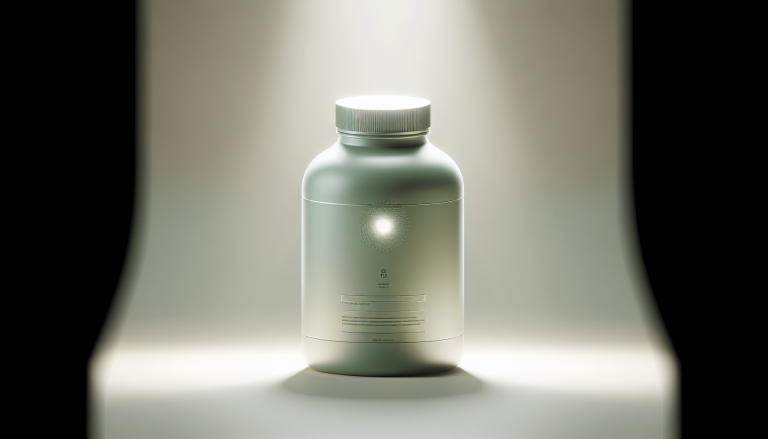What Vitamin Is Best For Joint Inflammation?
What comes to mind when you think about managing your joint health? Perhaps you’ve tried various treatments, but what about vitamins? If you’re grappling with joint inflammation, knowing which vitamins might help could be a game-changer.
Understanding Joint Inflammation
Before diving into what vitamins work best for joint inflammation, it’s essential to understand what joint inflammation actually is. Joint inflammation, often referred to as arthritis, can cause swelling, pain, and a reduced range of motion in affected joints. The inflammation is your body’s natural response to injury or illness, but when it happens in your joints, it can be debilitating.
Types of Joint Inflammation
- Osteoarthritis – Commonly associated with aging, this type involves the breakdown of cartilage in joints.
- Rheumatoid Arthritis – An autoimmune disorder where the immune system attacks healthy joint tissue.
- Psoriatic Arthritis – Occurs in people with psoriasis and involves joint pain and swelling.
- Gout – Caused by excessive uric acid leading to inflammation in the joints.
Understanding which type you have is crucial for effective treatment, including which vitamins might help improve your condition.
Importance of Diet in Managing Inflammation
Your diet plays a significant role in managing joint inflammation. Nutrient-rich foods can reduce inflammation and provide relief. So, where do vitamins fit into all of this?
Anti-inflammatory Foods
Focusing on anti-inflammatory foods can make a difference in how you feel. Examples include:
- Fatty fish like salmon and mackerel
- Green leafy vegetables
- Fruits such as berries and oranges
- Nuts like almonds and walnuts
Incorporating these foods can provide a balanced diet that supports joint health.

Vitamins and Joint Inflammation
There are several vitamins you can look into to help manage or reduce joint inflammation. They each have unique properties that can aid in reducing inflammation, protecting joint tissue, or both. Let’s break down the most important ones.
Vitamin D
Vitamin D is crucial for the absorption of calcium, which is essential for maintaining strong bones. Lack of Vitamin D can lead to weaker bones and more inflammation.
Benefits:
- Bone Health: Enhances calcium absorption, promoting strong bones.
- Immune Support: Helps regulate the immune system, potentially reducing autoimmune responses that lead to inflammation.
Sources:
- Sunlight exposure
- Fatty fish
- Fortified foods (like milk and cereals)
- Supplements
Vitamin C
Vitamin C is a potent antioxidant that helps fight inflammation by neutralizing free radicals in the body.
Benefits:
- Collagen Production: Vital for the synthesis of collagen, which is a key component in cartilage.
- Antioxidant Properties: Neutralizes harmful free radicals, reducing oxidative stress.
Sources:
- Citrus fruits (oranges, lemons)
- Berries
- Broccoli
- Spinach
Vitamin E
Vitamin E is another antioxidant that can help reduce inflammation. Its role in protecting cell membranes makes it an essential nutrient for overall joint health.
Benefits:
- Antioxidant Properties: Helps protect tissues from oxidative damage.
- Immune Function: Supports the immune system, which can help control inflammatory responses.
Sources:
- Nuts and seeds
- Green leafy vegetables
- Fish
- Supplements
Vitamin K
Vitamin K is pivotal for bone metabolism and the regulation of bone minerali. It helps in maintaining strong bones and may reduce inflammation.
Benefits:
- Bone Health: Supports the regulation of calcium in bones and prevents calcification of blood vessels.
- Anti-inflammatory: May reduce inflammatory markers in the blood.
Sources:
- Green leafy vegetables (kale, spinach)
- Brussels sprouts
- Fermented foods
- Liver
Creating a Vitamin-Rich Plan for Joint Health
Daily Recommendations
Below is a table outlining the recommended daily intake of these vitamins for adults:
| Vitamin | Recommended Daily Intake (Adults) |
|---|---|
| Vitamin D | 600-800 IU |
| Vitamin C | 65-90 mg |
| Vitamin E | 15 mg |
| Vitamin K | 90-120 mcg |
Balanced Meal Plan
Incorporating these vitamins into your diet doesn’t have to be difficult. Here’s a sample meal plan to get you started.
Breakfast:
- Smoothie with spinach, berries, and a splash of fortified orange juice (Vitamins C, K, and D)
- Whole grain toast with almond butter (Vitamin E)
Lunch:
- Grilled salmon salad with kale, Brussels sprouts, and a citrus vinaigrette (Vitamins D, K, and C)
- Side of fruit salad (Vitamin C)
Dinner:
- Stir-fry with tofu, broccoli, and colorful bell peppers (Vitamins C, K, and E)
- Quinoa as a base (Mild source of Vitamin E)
Snacks:
- Nuts and seeds mix (Vitamin E)
- Fresh carrot sticks (minor Vitamin K and E)
Sticking to a diverse diet rich in these vitamins will support your joint health and help alleviate inflammation.

Supplements: Are They Necessary?
While it’s ideal to get your nutrients from food, supplements can be beneficial, especially if you have a deficiency. Here’s what you need to know about supplements for joint inflammation.
When to Consider Supplements
- Vitamin Deficiency: Blood tests indicate you’re not getting enough.
- Dietary Restrictions: You have allergies or dietary preferences preventing you from eating certain foods.
- Medical Conditions: Certain health conditions may impair your body’s ability to absorb these nutrients.
Choosing the Right Supplement
- Quality: Look for high-quality brands that are third-party tested.
- Individual Needs: Consult with a healthcare provider to get personalized advice.
Combining Vitamins with Other Treatments
Taking vitamins is just one aspect of managing joint inflammation. Combining them with other treatments can offer more holistic relief.
Physical Therapy
Physical therapy can help strengthen the muscles around your joints, providing better support and reducing pain.
Medication
Anti-inflammatory medications, taken under medical guidance, can provide immediate and short-term relief.
Lifestyle Changes
- Exercise: Regular, low-impact exercise like swimming or walking can improve joint flexibility and reduce inflammation.
- Weight Management: Maintaining a healthy weight reduces stress on the joints.
Monitoring Your Progress
As you incorporate vitamins into your regimen, keep track of your symptoms and any changes. It’s essential to figure out which combination works best for you.
Keep a Journal
Document your daily vitamin intake, meals, physical activities, and how you feel. This record will help you understand patterns and effective strategies for managing your inflammation.
Consult Your Doctor
Regular consultations with a healthcare provider can provide insights and adjustments to your regimen. Blood tests can also help ensure that your vitamin levels are optimal.
FAQs About Vitamins and Joint Inflammation
How long does it take for vitamins to show results?
It could take several weeks to a few months to notice significant changes. Consistency is key.
Can you take all these vitamins together?
Yes, you can, but it’s vital to avoid exceeding recommended dosages. Consultation with a healthcare provider is crucial for a tailored plan.
Are there any side effects?
While vitamins from foods are generally safe, supplements in high doses can cause side effects. For example, excessive Vitamin D can lead to calcium buildup, hurting your kidneys.
Conclusion
So, what vitamin is best for joint inflammation? Each vitamin mentioned—D, C, E, and K—offers unique benefits that contribute to joint health by reducing inflammation and supporting bone and cartilage health. Integrating a variety of these vitamins through a balanced diet or supplements can make a noticeable difference in alleviating joint discomfort. Always remember to consult with healthcare professionals when making significant changes to your diet or supplement regimen.
Additional Resources
Imagine playing hide and seek with your grandchildren, in the backyard… Later, you’ll go with them to the park and they’ll blow you a kiss, telling you, you’re the best grandpa in the universe!
Before arthritis took over your joints, bones and made you feel like a burden for those around you.
But what if I told you that you can have all of that back without taking a single pill, without paying a single visit to a physician’s office?
What if I told you that the key to moderate your arthritis, even by 80%, hides deep inside in your kitchen’s cupboard?
Until one day I started eating these and realized that an everyday cooking ingredient slowed down my soreness rapidly.







